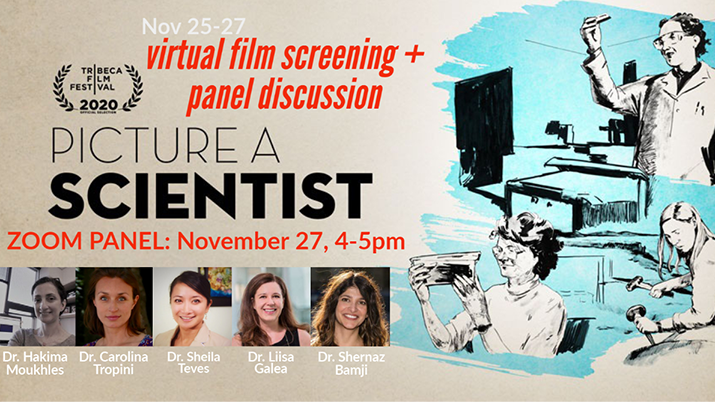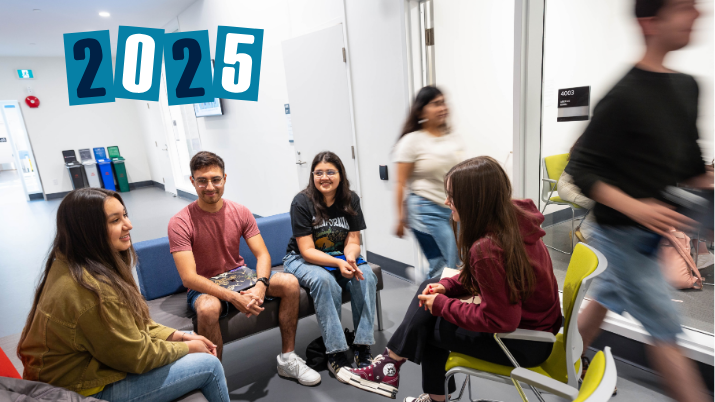

Picture a Scientist is a documentary film that chronicles the rise of researchers who are writing a new chapter for women scientists and provides new perspectives on how to make science itself more diverse, equitable, and open to all.
Featuring geologist Jane Willenbring, chemist Raychelle Burks, and biologist Nancy Hopkins, as well as key social scientists working to understand and reduce gender bias in the sciences, Picture a Scientist brings diversity in science into sharp view at a critical time. The current pandemic is a call to action for scientists to work together globally, with a multitude of different perspectives, to defeat COVID-19. For too long, women and other minorities in science have been left out or driven out, stymied by a system of harassment, discrimination, and general bias.
After watching the film virtually between November 25-27, please join us for a panel discussion on November 27 via Zoom with several UBC women scientists as they discuss the film and their own personal experiences.
RSVP to receive the link to the film and Zoom discussion (limited to 300 participants from the UBC community due to Zoom meeting capacity)
Event hosted in partnership with the Djavad Mowafaghian Centre for Brain Health, Life Sciences Institute and the Department of Psychology.
Host and Moderator
Dr. Hakima Moukhles
Associate Professor, Department of Cellular and Physiological Sciences
Panelists
Dr. Shernaz Bamji
Associate Director, Djavad Mowafaghian Centre for Brain Health
Professor, Department of Cellular and Physiological Sciences
Dr. Bamji has a long-standing interest in understanding the molecular and cellular mechanisms underlying neural connectivity and synaptic plasticity. Her work has provided valuable information about fundamental mechanisms underlying learning and memory, as well as how these processes are perturbed in diseased states.
Dr. Liisa Galea
Professor, Department of Psychology
Director of the Graduate Program in Neuroscience
Dr. Galea’s research investigates how sex hormones influence brain health and disease in both females and males. The main goal of her research is to improve brain health for women and men by examining the influence of sex and sex hormones on normal and diseased brain states such as depression and Alzheimer’s disease.
Dr. Sheila Teves
Assistant Professor, Department of Biochemistry and Molecular Biology
Dr. Teves’ research studies how transcription is maintained and altered over time using the model system of mouse embryonic stem cells. The long-term goal of her research is to understand the mechanisms governing transcriptional memory over multiple time scales.
Dr. Carolina Tropini
Assistant Professor, School of Biomedical Engineering/Department of Microbiology & Immunology
Dr. Tropini’s interests lie at the nexus of medicine, microbial biophysics and engineering. Working in the field of the gut microbiota, she is applying novel tools to longstanding questions regarding the stability of microbial communities and their response to perturbations during disease.


